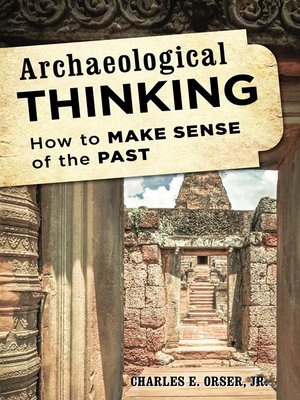
Sign up to save your library
With an OverDrive account, you can save your favorite libraries for at-a-glance information about availability. Find out more about OverDrive accounts.
Find this title in Libby, the library reading app by OverDrive.



Search for a digital library with this title
Title found at these libraries:
| Library Name | Distance |
|---|---|
| Loading... |
How do archaeologists think? How do they use the scattered and often-fragmentary remains from the past—both historical and excavated—to create meaningful, sensible interpretations of human history? In Archaeological Thinking, Charles E. Orser, Jr., provides a commonsense guide to applying critical thinking skills to archaeological questions and evidence.
Rather than critiquing and debunking specific cases of pseudo-archaeology or concentrating on archaeological theory, Orser considers the basics of scientific thinking, the use of logic and analogy, the meaning and context of facts, and the evaluation of source materials. He explains, concisely and accessibly, how archaeologists use these principles to create pictures of the past and teaches students to develop the skills needed to make equally reasoned interpretations.
Rather than critiquing and debunking specific cases of pseudo-archaeology or concentrating on archaeological theory, Orser considers the basics of scientific thinking, the use of logic and analogy, the meaning and context of facts, and the evaluation of source materials. He explains, concisely and accessibly, how archaeologists use these principles to create pictures of the past and teaches students to develop the skills needed to make equally reasoned interpretations.







